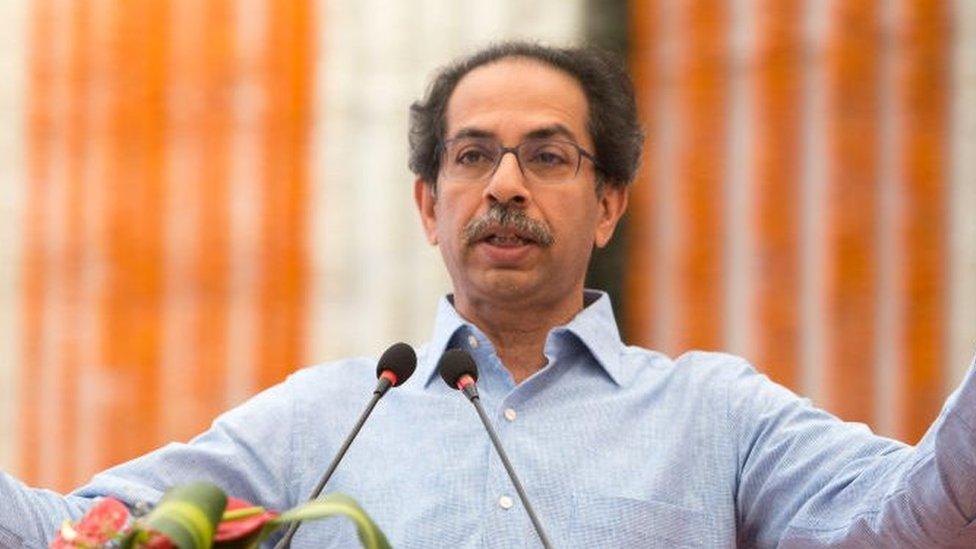Maharashtra: What is India's 'luxury resort politics'?
- Published
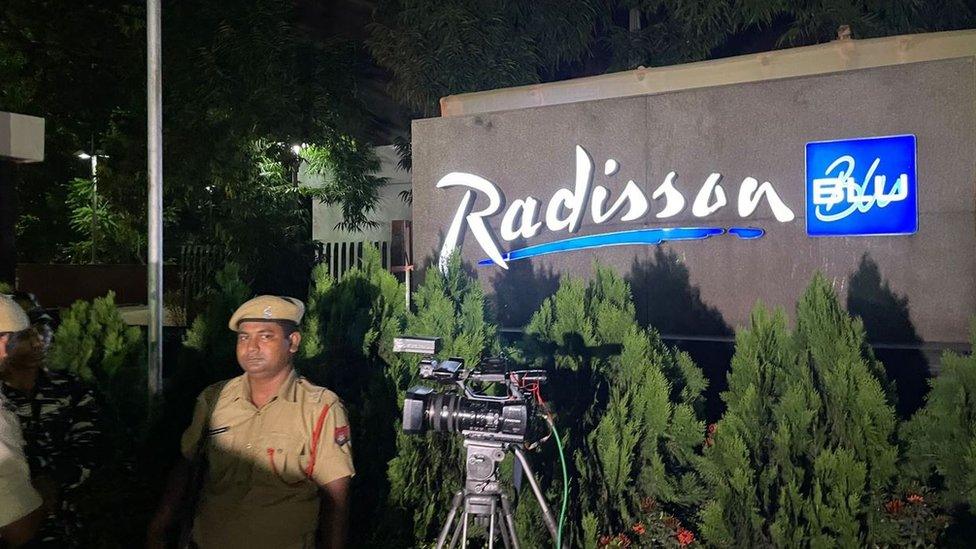
Around 40 lawmakers in Maharashtra have threatened to withdraw support from the state government
Politics in India has once again moved from legislative assemblies to luxurious hotels.
The latest spectacle is playing out in India's richest state, Maharashtra. Around 40 lawmakers - led by influential minister Eknath Shinde - are holed up in an upmarket hotel thousands of miles away from home in Guwahati city in the north-eastern state of Assam.
India's democratic process allows any party that can prove it has a majority - over the halfway mark in legislatures - to form a government. So when electoral margins are low, governments - especially coalitions - run the risk of having the rug pulled from under their feet by rival parties and sometimes by their own disgruntled lawmakers.
This can lead to what is described as "resort politics" - where a political party rounds up lawmakers and takes them to a well-guarded resort or a hotel, where they are kept under close watch to stop them from defecting.
And leaders go to great lengths to stave off their opponents. Reports say that Mr Shinde moved his group all the way to Assam partly because Gujarat - where they were initially taken - was "too close to Maharashtra", raising the risks of disgruntled lawmakers returning to Chief Minister Uddhav Thackeray.
The rebelling politicians belong to the Shiv Sena party, which is currently governing Maharashtra as part of a coalition with the Congress party and the regional Nationalist Congress Party (NCP).
Mr Shinde and the lawmakers are now threatening to withdraw their support from the coalition, pushing it to the brink of collapse.
Reports say that Mr Shinde is likely to form a new coalition with the Bharatiya Janata Party (BJP). The BJP, however, has denied playing any role in the crisis.
On Wednesday, dramatic videos of Maharashtra lawmakers running at Gujarat airport to catch a flight to Assam went viral. The politicians were confronted by a gaggle of reporters who kept bumping into them as they grumblingly made detours to avoid a collision.
"Looks like footage taken from a movie," a social media user wrote, external.
Allow X content?
This article contains content provided by X. We ask for your permission before anything is loaded, as they may be using cookies and other technologies. You may want to read X’s cookie policy, external and privacy policy, external before accepting. To view this content choose ‘accept and continue’.
Such spectacles are not new and go back to the 1980s when political parties first began moving their lawmakers to resorts whenever they feared defections.
In the past, some venues became famous after hosting politicians who took decisions to make or break governments.
In 1984, resort politics was witnessed, external in Andhra Pradesh state when former chief minister Chandrababu Naidu brought several lawmakers to neighbouring Karnataka to ensure they voted according to his plans in an upcoming confidence vote.
While these stories were largely told by newspapers in the 1980s, the present-day politics plays out on TV channels and also on social media.
In 2019, when the state government in Karnataka state felt that the opposition party was making overtures to its lawmakers, it moved them to a luxury resort. Footage showing them relaxing while the state stared at political uncertainty went viral.
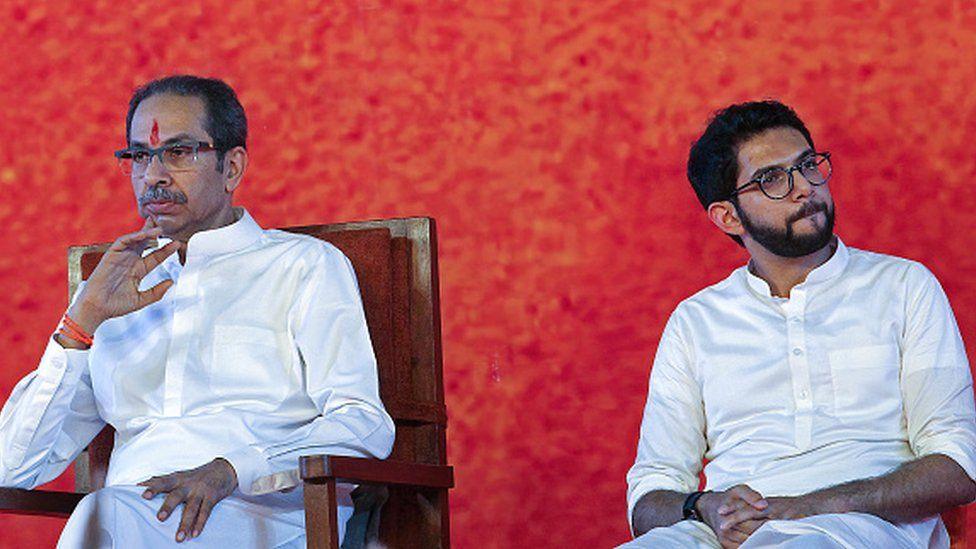
The fate of the Maharashtra government - led by Uddhav Thackeray (L) hangs in the balance
Critics say this points to weakened democratic structures within political parties.
"Lawmakers are sometimes forced to switch sides because they are powerless in comparison to senior party leaders," political scientist Rahul Verma explains.
"Their nomination depends on their loyalty to the leader, so they try to stick to one camp or the other."
Political writer Sudhir Suryawanshi agrees.
"The ethics, principles and commitment to ideology and party does not play a role now. Each elected representative wants to remain in power," he says.
India's anti-defection law bars individual lawmakers from switching sides. However, the law does not apply when the number of lawmakers who quit a political party make up two-thirds of its strength in the legislature.
That's the reason why defections usually happen in large numbers.
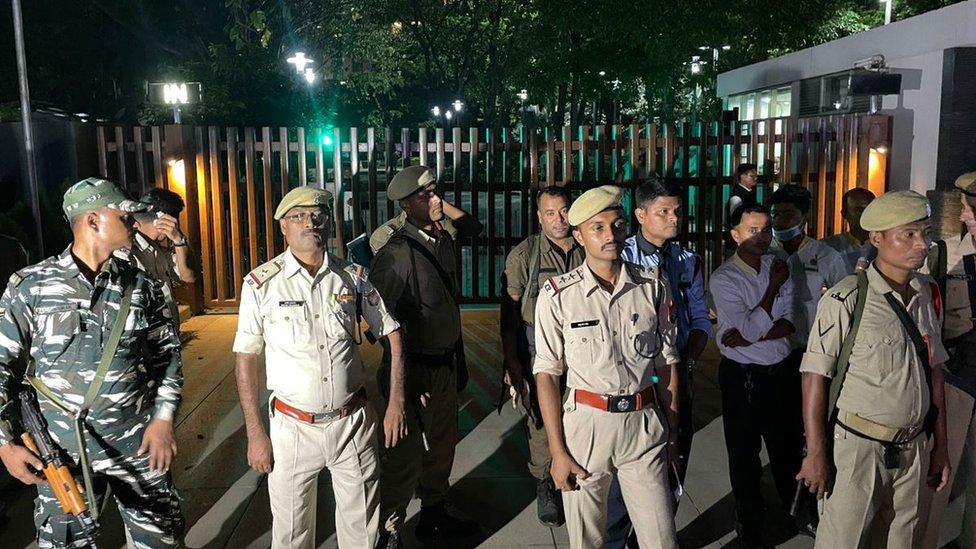
Over 40 legislators from Shiv Sena party are in the hotel
India has dozens of strong regional parties and state elections often give fragmented results, leaving room for defections.
"If you have too many small players in any market, there will always be one player which will always consolidate the competition or become a monopoly. That's how politicians also operate," Mr Verma explains.
And whenever these defections play out, the venues are often scenic resorts or upscale hotels. Some lawmakers have been caught on camera playing cricket, external and cards and lounging in resorts while plunging their states into political crisis.
Politicians are made to switch off all digital devices, including mobile phones, and they are kept under the watchful eyes of senior leaders.
In 2019, Congress party lawmakers in Rajasthan state were treated to magic shows and film nights at the hotel where they stayed amid days of intense infighting between two senior leaders in the state. Their little vacation inspired a host of memes and jokes on the internet.
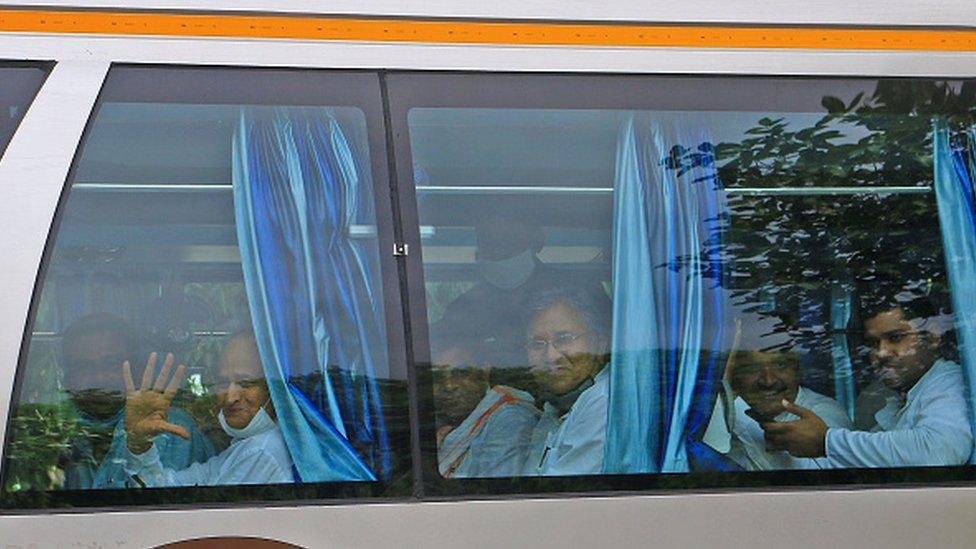
In 2019, Congress leaders of Rajasthan state spent days at a resort amid infighting
But things always don't go to plan, specially when some lawmakers start second guessing their move.
There have been reports of lawmakers trying to escape from their luxury hotels.
This time, too, some Shiv Sena leaders in Maharashtra have recounted vivid details of what they called their "capture" and eventual "escape".
Kailas Patil said some rebel leaders told him they were going for dinner in Mumbai and instead tried to drive him to neighbouring Gujarat state. He alleged he escaped from the car, but had to walk miles until he hitched a ride on a motorbike and later in a lorry to get back to Mumbai.
Another Shiv Sena legislator claimed that some people forcibly admitted him to a hospital when he tried to escape from the hotel in Gujarat. He still managed to flee and has now pledged his support to Mr Thackeray.
Experts say while such drama may make for good prime time TV, it also points to fast deteriorating ethics in politics.

More from the BBC on India:

Related topics
- Published26 November 2019
- Published23 June 2022
